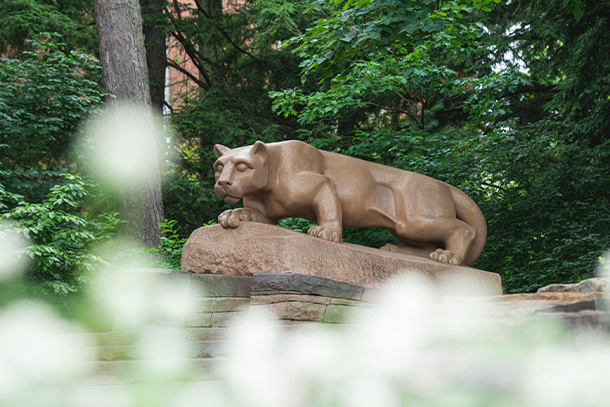
Penn State Institute for Computational Data Sciences Associate Director Mahmut Kandemir speaks about ongoing initiatives and research using emerging technologies to better inform the future of computer science, cyberinfrastructure and more. Credit: Penn State. Creative Commons
ICDS associate director focuses research, initiatives on emerging technologies
May 20, 2024
Editor’s note: A version of this article was first published on Penn State News.
By Mallorie McIlwain
UNIVERSITY PARK, Pa. — Emerging technologies using computer science, engineering and data are on the mind of Penn State Institute of Computational Data Sciences (ICDS) Associate Director Mahmut Kandemir, who is also a distinguished professor of computer science.
Kandemir has been a part of ICDS for around six years, first starting as part of the faculty council and then rising to associate director two years ago.
Currently, Kandemir is leading three initiatives within ICDS including: intelligent cyberinfrastructure using machine learning and/or artificial intelligence (AI) as a virtual adviser, quantum computing and sustainable computing.
“The main goal [of the quantum computing initiative] is to provide early innovation of quantum computing and organize practical efforts within Penn State to initiate large quantum computing proposals,” Kandemir said.
Additionally, the initiatives are using developing technologies and smart manufacturing to float sophisticated decisions to AI to see big picture conclusions and solve problems that can’t be solved with classical computers used today, according to Kandemir.
Kandemir is also working on a sustainable computing initiative looking at using and producing devices in an “energy-friendly manner,” Kandemir said.
“The computer [and other technology] is a big contributor to the carbon footprint across the world,” Kandemir said. “During the production of machines, and when using machines, we are looking at ways in which we can reduce the carbon footprint. Strong collaborations are needed with the Institute of Energy and Environment to better understand the carbon footprint concept and its impact. In particular, it's not accurate to equate energy optimization with sustainable computing. It requires new methods and methodologies.”
In sticking with ICDS’ mission, Kandemir’s sustainable computing initiative continues to enhance interdisciplinary research.
Alongside ICDS initiatives, Kandemir is working on a computer architecture research project with six computer science faculty members and 40 doctoral students.
“It’s a huge group working together and exploring many different things in the broad areas of computer architecture and compiler development,” Kandemir said. “The focus is on the storage and usage of devices, exploring new behaviors and how new computer architecture works better than the existing.”
Students are working on how to build new devices and how to accommodate them in computer systems. The students are also determining the software needed to create new versions of solid-state devices, according to Kandemir.
“The machine that you would use [after new architecture] would be a better device,” Kandemir said. “It would have faster CPUs (central processing units) and GPUs (graphics processing units); it would have better storage. That’s the kind of difference between university or industry research... at the university level, there is no limit to that research.”
The goal is to for the research to mature and be produced by larger companies within the industry. And, according to Kandemir, many of the students participating in this research are simultaneously working with companies developing devices like Nivida and Intel.
“In other words, the research [that the students are doing] is at least 10 years ahead of time,” Kandemir said. “It is what makes it more exciting in a sense, because you’re looking at things that aren’t available right now but will be [in the future] or to see what would potentially impact that time or may not happen and go in a different direction.”
Kandemir described the three most important parts of the “computer ecosystem,” as the architecture, or engineering and machine; the software, or computer science; and analysis, or data science.
“The best part of it [the research] is being able to work with great students,” Kandemir said. “Our research attracts some of the best students from all around the world. It’s enjoyable and stimulating to work with the students. It’s a very active and dynamic environment. Computer science and engineering are enabling and accelerating scientific discovery.”



